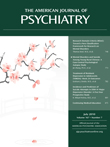Nidotherapy, which literally means "nest therapy," was created by Peter Tyrer, following the example of his teacher, Robert Cawley. Cawley treated Janet Frame, an author who had originally been diagnosed with schizophrenia and pronounced incurable. Cawley listened to her for an extended period of time, and she improved enough to leave inpatient treatment and to resume her writing. Frame's work included an autobiography in which she described her treatment with Cawley. In retrospect, Tyrer thinks that she had Asperger's syndrome rather than schizophrenia and that Cawley was able to appreciate her strengths and help her find ways to use these strengths to better adapt to the world around her. The analogy to a bird's nest is based on the capability of the nest to respond flexibly to the various stages of the bird's life cycle.
The subtitle of the book, "Harmonising the Environment With the Patient," seems to suggest that the book and the therapy focus on some sort of environmental manipulation. On the contrary, the book is about careful listening to a person who seems to be ill, to helping him or her find an environment in which to live more comfortably. It is thus very much in a European tradition that involves listening to the life stories of very unusual people, such as hermits or marooned shipwreck survivors, and suspending all judgment of how they lived their lives. The candidates for such therapy might be persons such as J. Alfred Prufrock from T.S. Eliot's poem, who seems to have restricted his own environment because of diffidence. Tyrer points out that Darwin proposed that survival comes from being able to adapt to an environment, a concept that Herbert Spencer somehow mutated when he convinced Darwin to rephrase it as survival of the fittest.
This book is thus a road map for listening to and understanding unusual persons without judgment and without classification. Nidotherapy requires the luxury of time and the willingness to consider how the therapist can subtly increase the comfort of the patient in the treatment as part of the environmental adaptation. The environment is thus conceptualized as the sum of the social setting, the interpersonal relationship, and the patient's inner world. There is a caution, however, about trying to get too close to the patient, also presented as an analogy, the well-known Arthur Schopenhauer parable of porcupines on a chilly winter night who huddle together, then prick each other and move apart, only to huddle once more as the night becomes colder.
Nidotherapy is based on overt trust and optimism, which are freely shared with the patient. It is perhaps the ultimate personalized medicine, because its primary therapeutic strategy is the full appreciation of the patient as a unique person in his or her own environment.

